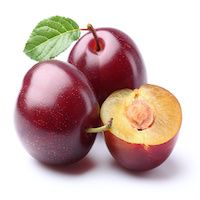Article
Colon Cancer Risk Reduced with Dried Plums in Diet
Author(s):
Dried plums may decrease the risk for colon cancer.

Dried plums may decrease the risk for colon cancer.
Researchers from Texas A&M examined the possible cancer protective mechanisms in dried plums using rat models of colon cancer.
At the 2015 Experimental Biology conference in Boston in September, researchers presented data supporting that dried plums contained phenolic compounds, which, among other things, had an ability to mimic antioxidants in preventing damage to human DNA.
“The hypothesis we tested in this experiment was that consumption of dried plums would promote retention of beneficial microbiota and patterns of microbial metabolism throughout the colon,” study leader Nancy Turner, PhD, explained in a press release. “If it did this, then it might also help reduce the risk of colon cancer.”
The rat models were either fed a control diet or a diet containing dried plums that matched for total calories and macronutrient makeup, so the diets’ effects on gut microbiota or colon cancer risk could be specifically attributed to the dried plums.
The team then examined the intestinal tissue from each cohort and found that the dried plum diet increased Bacteroidetes and reduced Firmicutes — two of the major phyla of bacteria in the gut. These changes were present in the distal colon without changing the makeup of the proximal colon. But, the researchers said, the control diet rats had a lower ratio of Bacteroidetes and increased Firmicutes in the distal colon compared to the dried plum diet cohort.
“Through our research, we were able to show that dried plums promote retention of beneficial bacteria throughout the colon, and by doing so they may reduce the risk of colon cancer,” Turner said. “We were able to conclude that dried plums did, in fact, appear to promote retention of beneficial microbiota and microbial metabolism throughout the colon, which was associated with a reduced incidence of precancerous lesions.”
Additionally, the researchers said that the dried plum diet rats had reduced numbers of aberrant crypts, aberrant crypt foci, and high multiplicity aberrant crypt foci when compared to the control diet rats. The aberrant crypt foci are one of the earliest detectable precancerous lesions, the researchers said, and are often a strong indicator for cancer development.
The American Cancer Society reports that colon cancer is expected to cause nearly 50,000 deaths across the United States in 2015. Previous research about the effect of diet on the risk of colon cancer had discovered that diet could alter metabolism and colon microbiota makeup. Those factors can alter both disease prevention and treatment, the authors said.




